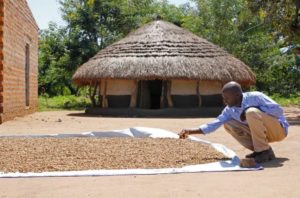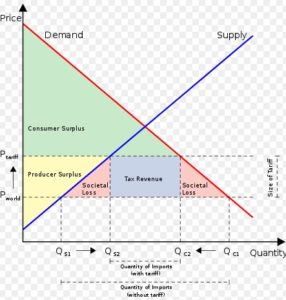
Africa’s Agri-food Systems
The US’s approaching administration has a memorable opportunity to expand America’s worldwide leadership by advancing the economic changes in progress in Africa. A compelling US procedure would be founded on the way that Africa’s advancement still extraordinarily relies upon the execution of its Agri-food systems.
Cultivating remains the essential wellspring of work for 65% of Africa’s populace. Neediness rates are in decay. Be that as it may, they remain inadmissibly high. Putting more cash in the hands of 500 million Africans who depend on cultivating for their jobs will affect the pace of economic growth. Basically, no nation on the planet has changed its economy from an agrarian economy to a cutting edge one without managed agricultural productivity growth. For what reason would it be advisable for us to citizens’ minds? Simply, in light of the fact that putting resources into Africa’s economic growth is to America’s greatest advantage.
US exports of agricultural products to sub-Saharan Africa totaled $2.6 billion out of 2013. This will develop quickly if Africa keeps on creating. By 2050, sub-Saharan Africa will have 2.1 billion individuals – 22% of the total populace contrasted with 12% today. Quickly rising populaces and incomes will expand the interest for a sheltered, reasonable and practical worldwide food supply. It is progressively perceived that most African agricultural exports don’t contend with US ranch and agribusiness interests. In many occasions, they are very corresponding. Rising ranch incomes in Africa promote growth multipliers. These extend private speculation and work openings in African agri-food systems and in whatever is left of the economy. Rising incomes in Africa likewise promote US send-out interests. A lively agricultural area will hurry Africa’s change to a more prosperous, broadened, and stable locale.
These are the advantages that would rise up out of solid organizations between African governments, the private part, and a huge number of African ranchers and business visionaries. Edified US improvement help programs are required. A powerful US government approach should perceive the sensational changes in the African scene in the course of recent decades as for organizations. Advancement models started on 1980s conditions never again fit 2017 substances. US improvement associations can be particularly viable in the event that they comprehend that today there is substantially more prominent nearby expertise and mindfulness.
Numerous more Africans have proficient occupation expertise identified with agri-food systems than they did 25 years prior. This is valid in both general society and private areas. Many are taught universally and have important technical abilities. They can work viably given predominant learning of neighborhood culture and associations with focuses of nearby power. That implies they’re fit for impacting government ventures.
A successful US technique toward African agricultural advancement will connect with more African experts than previously. In any case, conditions have not changed much in no less than one essential regard. Open agricultural establishments, for example, R&D and expansion administrations, assume a critical part in supporting ranch productivity growth. Yet, numerous in Africa can’t satisfy their orders. US and African governments share center premiums in advancing private interest in African food systems. This would be done in association with nearby firms. It would bolster reasonable agricultural exchange and a supportable worldwide food framework. Accomplishing shared US-Africa interests for economic change in Africa will require more prominent help for African organizations that help the improvement of agri-food systems.
In conclusion, the US has one of the world’s most dynamic and productive agricultural systems. This is extraordinarily obliged to the US arrive allow college framework, the US Cooperative Extension Service, and a large group of other open establishments. These bring indispensable reasonable data to agricultural makers, entrepreneurs, shoppers, families, and youngsters. This rich history and know-how imply the US can give truly necessary leadership and expertise to help institutional limit working in Africa.
Model :



